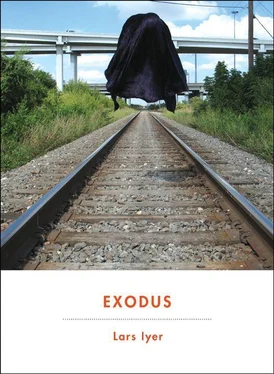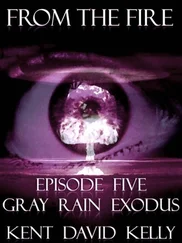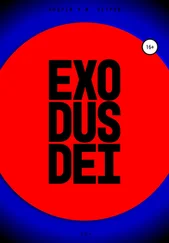“Uproarious.”
— NEW YORK TIMES BOOK REVIEW
“[ Dogma ] brings back W. and Lars, the most unlikely and absurd literary duo since Samuel Beckett’s Vladimir and Estragon.… Like Godot, this novel is a philosophical rumination, at once serious and playful, on the nature of existence and meaning. While it’s comic, there is at bottom a profoundly tragic sense of the chaos and emptiness of modern life. Despair has rarely been so entertaining.”
— LIBRARY JOURNAL
“Just when my hilarity over the first book of their misadventures, Spurious , had faded to a low chuckle, Dogma comes along. Between the two books, there’s almost no point in breathing, much less coming to any strong conclusions about life, the universe, and everything.”
— LOS ANGELES REVIEW OF BOOKS
“Witheringly, gut-bustingly funny.”
— THE NEW INQUIRY
“ Dogma , like its prequel Spurious , is provocative in its arguments, scrupulously plain in its style and excoriating in its honesty. Iyer is an author who rejects the parochialism and timidity we too often associate with British novelists in favour of an ugly grapple with the big themes.”
— THE SPECTATOR (UK)
“The epithet ‘Beckettian’ is perhaps the most overused in criticism, frequently employed as a proxy for less distinguished designations such as ‘sparse’ or ‘a bit depressing’. But Lars Iyer’s fiction richly deserves this appellation. His playfully spare — and wryly depressing — landscape, incorporating a bickering double act on a hopeless, existential journey, is steeped in the bathos, farce, wordplay and metaphysics of the man John Calder referred to as ‘the last of the great stoics’, its characters accelerating towards a condition of eternal silence, fuelled only by the necessity of speaking out.”
— THE TIMES LITERARY SUPPLEMENT
“The bathos is perfectly pitched, and Lars and W.’s antics are gloriously uproarious.”
— DAVID WINTERS, THE RUMPUS
“Expertly crafted throughout … Dogma is also constantly in the process of becoming, which is why — for all the talk of exhaustion and Armageddon — it feels so vital and remarkably angst-free.… a comic celebration.”
— ANDREW GALLIX, BOOKSLUT
“Iyer has distinguished himself as a writer of great comic ability, and I would certainly snap up anything else he might write to see how he deploys this blend of erudition and wit.”
— JACOB SILVERMAN, THE QUARTERLY CONVERSATION
“Happily, the insults are Falstafian (as in Spurious ) … Dogma ’s aphoristic style makes the urge to frequently quote from it irresistible.”
— THE INDIAN EXPRESS
“Iyer employs the first-person perspective with fantastic flair and originality.… this book is surreal, brainy, plotless, and arguably pointless. It is also brilliantly written and very funny.… I don’t know who else might like this strange book as much as I did, but, as for me, I can’t wait for the third.”
— DREW NELLINS, THE MILLIONS
“Like its predecessor, Dogma is above all a goldmine of ingeniously abstruse insults, and as a result it is frequently piss-yourself-on-public-transport hilarious.”
— DANNY BYRNE, READY, STEADY, BOOK
3:AM Novel of the Year 2011
“It’s wonderful. I’d recommend the book for its insults alone.”
— SAM JORDISON, THE GUARDIAN
“Fearsomely funny.”
— THE WASHINGTON POST
“Viciously funny.”
— SAN FRANCISCO CHRONICLE
“I’m still laughing, and it’s days later.”
— THE LOS ANGELES TIMES
“A tiny marvel.… [A] wonderfully monstrous creation.”
— STEVEN POOLE, THE GUARDIAN
“This novel has a seductive way of always doubling back on itself, scorching the earth but extracting its own strange brand of laughter from its commitment to despair.”
— THE BELIEVER
“Ought to be unreadable, but manages to be intelligent, wildly entertaining, and unexpectedly moving instead.”
— THE MILLIONS
“[A] hilarious and eminently quotable debut novel.”
— MODERN PAINTERS
“ Spurious is full of paradox. It’s about everything and nothing. It’s a funny book which uses exclamation marks (I know!). It provokes thought while evading easy understanding. Its characters speak simply about knotty concepts.… [I stopped] on almost every page to smile, think, or sense a cartoon lightbulb of understanding begin to glow above my head before popping out just as I concentrated on it.”
— JOHN SELF, ASYLUM
“Evoking literary duos like Don Quixote and Sancho Panza, and Othello and Iago, Iyer’s portrait of two insufferable academics fumbling for enlightenment illustrates what the author comically calls the most honorable cruelty: friendship.”
— ERIK MORSE, BOOKFORUM
“ Spurious is an amusing take on intellectual frustration and anomie, its two characters going through the motions in a world where it’s unclear what the right motions are any longer.”
— THE COMPLETE REVIEW
“A tragic mein … undercuts the sheer hilarity of Lars Iyer’s Spurious .… To read Spurious is to discuss Kafka’s The Castle and farts in one exacting sentence — all the while reeking of gin.”
— NYLON
“Iyer’s playfully cerebral debut [is] … piquant, often hilarious, and gutsy.”
— PUBLISHERS WEEKLY
He has things to tell me, W. says when I meet him at Newcastle airport in the morning. Great things! But first he needs a pint. He needs to regroup.
W.’s plane was full of obese children, he says. — ‘When did everyone get so fat?’ They ran up and down the aisle, unhindered by their girth. But W. got down to some reading despite their bellowing. He underlined passages and wrote in his notebook.
And what was I reading, as I waited for him? When I tell him, he nods and murmurs. — ‘Mazzarri, oh I see. Flusser, ah that’s far too complex for Lars …’
I’ll have to pay for the beer, W. says in The Trent . He no longer carries money, he says. He’s like the Queen.
W. wonders why I always make my lips — my great fat lips — into a funnel as I lift my drink. No doubt it’s all the better to pour it down, pint after pint: a funnel for the two pints I always neck at the bar before I sit down, and for the dregs of pints that other people leave behind …
A legal technicality , W. says over his second pint. Sacked by his university when they closed down the humanities, and what saved him? A legal technicality .
It’s not as if he hadn’t tried to defend himself, W. says. On the contrary, he’d mounted a heroic defence! At his termination hearing he performed a great oration, his version of Socrates’s apology to the jurists of Athens. How he spoke! W. says. Hours and hours without cease! The committee groaned, they slept. They tried to interrupt, begged to adjourn, but each time W. simply held up his hand. He wasn’t done .
He showed charts and circulated handouts, W. says. He pushed his Summa Idiotica across the table: four hundred pages to make the case against his dismissal. Chapters! An index! A table of contents! Twenty-four appendices! It will stand as his finest work, W. says. But it was all for nothing.
Читать дальше












